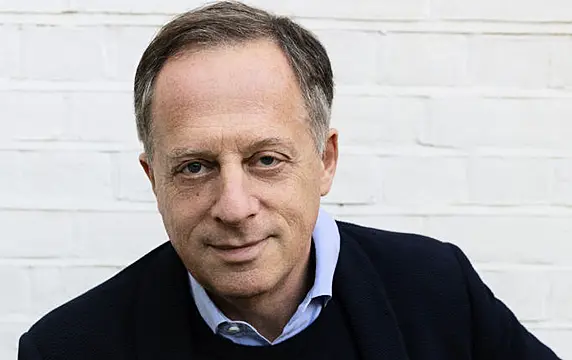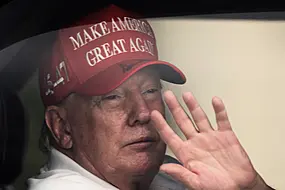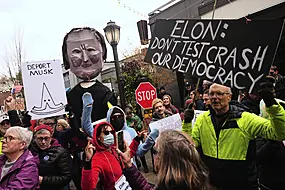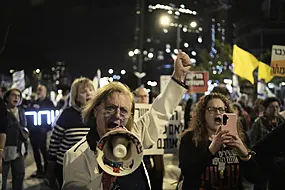BBC chairman Richard Sharp is facing calls to quit after MPs found he made “significant errors of judgment” by acting as a go-between for a loan guarantee for Boris Johnson.
A cross-party committee was furious that Mr Sharp failed to declare to MPs his role in facilitating the arrangement when he was applying for the job of BBC chairman and said he should “consider the impact his omissions will have” on trust in the broadcaster.
They said his actions “constitute a breach of the standards expected of individuals” applying for prominent public appointments.
Mr Sharp did not arrange the loan but admitted introducing his friend Sam Blyth, a cousin of Mr Johnson who wanted to help the then-UK prime minister with his financial troubles, to the British Cabinet Office.
A spokesman for Mr Sharp said he “regrets” not telling MPs about his involvement with Mr Blyth “and apologises”.
But Labour and SNP politicians suggested Mr Sharp’s position was untenable, while a UK government minister said it was up to the BBC to decide on his fate.
Mr Sharp was named as the preferred candidate for the BBC job in January 2021 and the Commons Digital, Culture, Media and Sport Committee backed his appointment, but crucially they were not aware of his role in facilitating the £800,000 loan guarantee.
In a strongly-worded report they have now suggested Mr Sharp’s failure to come clean could damage the BBC.
“Richard Sharp’s decisions, firstly to become involved in the facilitation of a loan to the then-prime minister while at the same time applying for a job that was in that same person’s gift, and then to fail to disclose this material relationship, were significant errors of judgment, which undermine confidence in the public appointments process and could deter qualified individuals from applying for such posts,” the MPs said.
The committee concluded: “Mr Sharp should consider the impact his omissions will have on trust in him, the BBC and the public appointments process.”
SNP MP John Nicolson, who sits on the Commons committee, said Mr Sharp’s position is now “extremely difficult”.
He told BBC’s Sunday With Laura Kuenssberg: “He has lost the trust of the BBC staff, that’s very clear, I’ve been deluged with messages from BBC staff saying they don’t see how he can head up the BBC any more.”
He said the situation was “all a bit banana republic”.
Shadow Cabinet minister Lisa Nandy said Mr Sharp’s position was “increasingly untenable”.
The shadow levelling up secretary told Sky News: “It’s becoming more and more difficult to see how Richard Sharp can continue in that role.”
Shadow culture secretary Lucy Powell said the situation “throws into serious doubt the impartiality and independence that is so fundamental to trust in the BBC”.
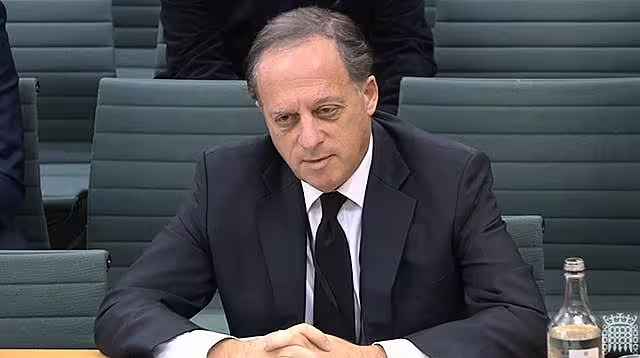
UK government minister Andrew Mitchell said the BBC board would have to take a view once another investigation, ordered by the Commissioner for Public Appointments, has been concluded.
“We need to be fair to all parties in this, including Richard Sharp,” he told the BBC.
Put to him that it was a decision for the Government, not the BBC, Mr Mitchell said: “The BBC is not a silent part of all of this, the board of the BBC will need to consider what he’s said and reach their own conclusions.
“I think the Government will react appropriately to that.”
Former culture minister Lord Vaizey defended Mr Sharp, saying: “You can acknowledge it is a blunder without saying it is hanging offence.”
He told BBC Radio 4’s Broadcasting House: “The report doesn’t say he should resign. It is really stretching it to say that Richard Sharp arranged a loan for Boris Johnson.”
Mr Blyth’s offer of help for the then-prime minister was made in September 2020 and Mr Sharp said he had stressed the need for things to be done “by the book”.
Following the launch of the recruitment process for the BBC chairman role, Mr Blyth contacted Mr Sharp to request an introduction to Cabinet Secretary Simon Case.
Mr Sharp met Mr Johnson before going to see Mr Case and informed him that he would be telling the Cabinet secretary about Mr Blyth’s offer of financial assistance.
Mr Sharp met Mr Case in December 2020, at which point he “agreed no further participation” in relation to the financial support, in order to avoid any conflict of interest or perception of conflict given his application, the report said.
A spokesman for Mr Sharp said the BBC chairman “appreciates that there was information that the committee felt that it should have been made aware of in his pre-appointment hearing”.
“He regrets this and apologises,” the spokesman said.
“It was in seeking at the time to ensure that the rules were followed, and in the belief that this had been achieved, that Mr Sharp acted in good faith in the way he did.”
“At that meeting, and subsequently, it was not suggested by the Cabinet Office that the act of connecting Mr Blyth with Mr Case was something that should be declared, and it was explicitly agreed that by not being party to the matter going forward he would be excluded from any conflict.”
The spokesman said Mr Sharp “would like to apologise again to the BBC’s brilliant staff given the distraction it has caused”.
